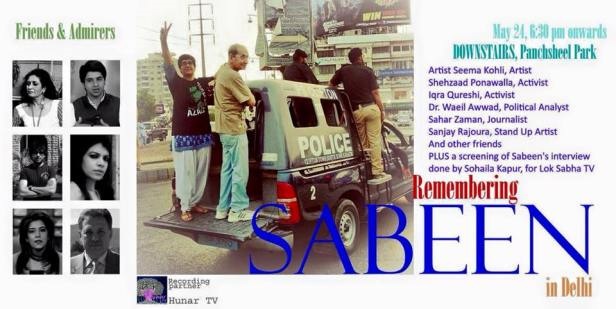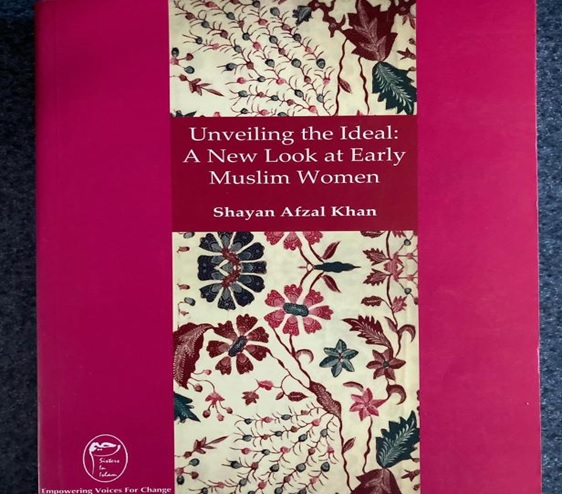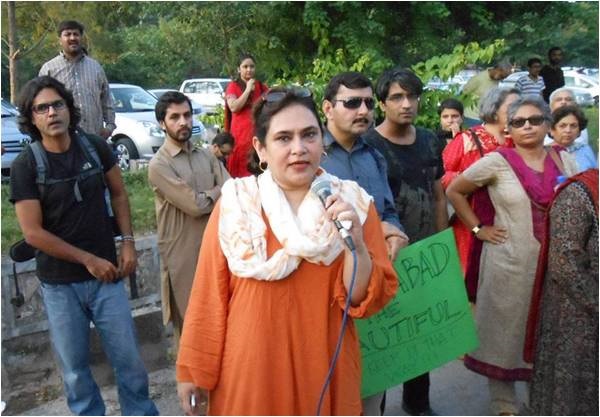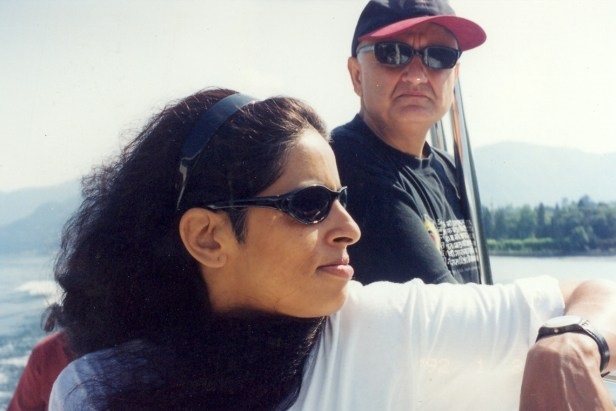I had known Sabeen since she was a teenager. We were comrades together in several peace initiatives – part of a large, cross-border tribe of ‘peacemongers’ as I call our community.
I can imagine her outrage at the dastardly attack on Tuesday 22 April 2025 at the scenic Baisaran Meadow in Pahalgam on the Indian side of Kashmir. Armed militants killed at least 26 men vacationing with their families. They included a 26-year-old newly-wed Indian Navy officer and a Nepali citizen.
Sabeen herself fell victim to a gunman who was motivated at least in part by ‘religious’ reasons. Sabeen embodied secular, humanist values that are anathema to those who uphold a certain narrative.
Last month, armed militants from the separatist Balochistan Liberation Army took hostage a passenger train travelling from Quetta to Peshawar. An army operation eventually led to the release of several hostages. Several insurgents as well as soldiers were killed. Pakistan blamed India for being behind the attack.
Less than a month earlier, addressing university students in Islamabad, Pakistan’s army chief Asim Munir had lashed out at the ‘Fitna-al Khawari j,’ referring to the banned militant group Tehreek-e-Taliban Pakistan that fights the Pakistani state on the pretext of religion, leading to thousands of civilian and security forces’ casualties.
While addressing a convention of overseas Pakistanis in Islamabad on 15 April 2025, the army chief upheld the disputed region of Kashmir as Pakistan’s “jugular vein” and Balochistan as the “jewel of Pakistan”. He also reiterated the ‘two-nation theory’ that sees Hindus and Muslims as separate nations.
Since the Pahalgam tragedy, the army chief’s “hard” speech is again making headlines, seen as a ‘dog-whistle’ to the attackers.
Why was Sabeen killed? There are many speculations. She had left for home after a discussion on Balochistan at The Second Floor , a coffee shop-art gallery-cultural hub known as T2F that she had established in 2007 – her first major project as part of her non-profit PeaceNiche.
Her mother Mahenaz Mahmud, an educationist, does not want to pursue the case. “It won’t give me Sabeen back,” she said when I met her earlier this year in Karachi. She has written and spoken movingly, with characteristic restraint, about Sabeen, including this essay, Sabeen: My Experience Junkie .

Flyer for event in Delhi honoring Sabeen, 2015
On Thursday, her mother will host a remembrance for Sabeen in Karachi, and friends will gather to remember Sabeen in New York. The bilingual group Joy of Urdu , launched by Sabeen’s and my friend Zarminae Ansari, will also host an online session honoring Sabeen, on Thursday at 11am Boston/ 4pm GMT/ 8 pm Pakistan time. The event will take place on Zoom (register at this link or follow the live broadcast on Facebook ).
Speakers at these events are among the hundreds of individuals who have endorsed the Southasia Peace Action Network , Sapan Founding Charter . More than 100 organizations have also endorsed the Charter’s three-point minimum common agenda: Let people in the South Asia region meet and engage in trade; uphold human rights and dignity at home before pointing fingers at others: and cooperate and collaborate in all areas.

Book jacket ‘Unveiling the Ideal: A New Look at early Muslim women’ by Shayan Afzal Khan (Musawah-Sisters in Islam, Malaysia, 2007)

Standing for justice: Shayan Afzal Khan “Poppy” in Islamabad - File photo
The birthday of another dear friend, Shayan Afzal Khan , falls on 21 April. Known widely as ‘Poppy,’ she succumbed to cancer on 21 February 2015, months before Sabeen was killed. Poppy’s legacies include her groundbreaking book ‘Unveiling the Ideal: A New Look at Early Muslim Women’ (Musawah-Sisters in Islam, Malaysia, 2007), a series of biographies of women in the early years of Islam.
Inspired by Sabeen’s T2F, she had started Kuch Khaas , a coffee shop-cum gallery and discussion space in 2010, the
first such venue in Pakistan’s capital city. Poppy’s older sister Zishan Afzal Khan known as ‘Mouse’ who I called Apa (elder sister) passed away on 18 July 2023. She had brought up Poppy’s two daughters as her own after we lost Poppy.
“I have buried both my daughters,” their father Afzal Khan told a friend quietly, bearing his unbearable loss stoically, reminding me of Sabeen’s mother Mahenaz.
This April also marks 20 years since the effervescent pioneering environmental journalist and feminist activist Saneeya Hussain, 50, passed on, in Sao Palo, Brazil – killed by “a traffic jam” as her grieving husband Luis told me. She had walked to the car after an asthma attack but en route to hospital, her breathing stopped. The stalled traffic kept her from reaching hospital on time, and she fell into a coma from which she never emerged.
Documentary: ‘Saneeya Hussain: From Pakistan with love’, Beena Sarwar, 2005 .
These inspiring women were my friends as well as peace-mongering comrades – “wonderful individuals who gave the world so much,” as the artist Salima Hashmi, also a Sapan founder member, in Lahore says. “They enriched our lives and live on within us.”
Sabeen and Saneeya contributed significantly towards the ideals of cross-border solidarity and regional peace. Many volunteers in South Asia and around the world take forward this legacy with Sapan, founded in March 2021.
These legacies also continue with organizations like the South Asia Foundation launched by UNESCO Goodwill Ambassador Madanjeet Singh in the year 2000. Madanjeet Singh, a towering figure (literally) who I met at Salima Hashmi’s home in Lahore in the 1990s, wanted to enable young people to interact with each other in the region. He did this through the SAF-Madanjeet Singh scholarships. Sabeen and I were among the foundation’s initial board members, along with Salima Hashmi, Khushi Kabir, and several others who are part of our Sapan network today.

Journalist Saneeya Hussain and Nepali editor Kanak Mani Dixit, Bellagio - Photo Supplied
Saneeya, my editor at the Star Weekend magazine in Karachi, had been active in Pakistan’s women’s rights movement including Shirkat Gah and the Women’s Action Forum. Working with the IUCN, the international conservation union, at its Karachi office, she played a key role in Pakistan’s National Conservation Strategy.
In 2002, she joined the media organization Panos South Asia in Kathmandu as its director. Many of the founding board members, including myself, are also part of the Sapan network.
As we enter yet another phase of India-Pakistan hostilities that already includes unprecedented steps like the suspension of the Indus Waters Treaty, we must continue to speak out for an alternative politics of peace, and to honor the legacies of women like Sabeen, Saneeya, and Poppy, and the values they embodied. It is the least we can do. Onwards.
(Beena Sarwar is a journalist and peace activist from Pakistan based in the Boston area. She is the founder editor of Sapan News and co-founder and curator of the Southasia Peace Action Network . This is her occasional Personal Political column. beena@sapannews.com.)
This is a Sapan News syndicated feature.
Note on Southasia as one word: Like Himal Southasian, we use ‘Southasia’ as one word, “seeking to restore some of the historical unity of our common living space, without wishing any violence on the existing nation states”.

